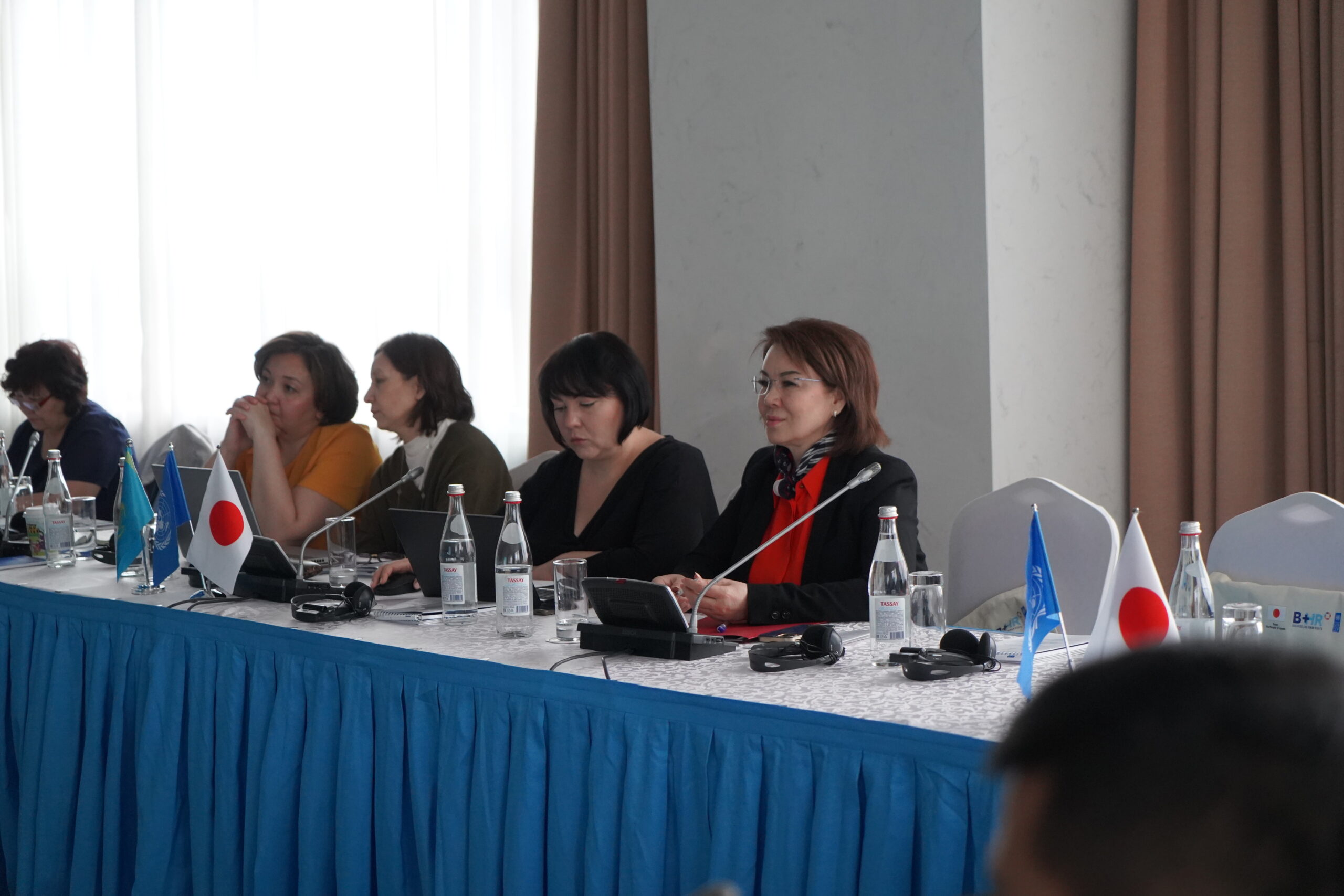ASTANA – The United Nations Development Programme (UNDP) presented the first outcomes of the ongoing Business and Human Rights project on June 30 in Astana, reported the UNDP Kazakhstan’s press service.

Overall, UN experts have formulated over 20 distinct recommendations pertaining to three fundamental domains of UN Guiding Principles implementation. Photo credit: UNDP Kazakhstan
Covering 17 countries, the Business and Human Rights project, a part of a global initiative led by UNDP and Japan’s government aims to promote responsible business standards and strengthen the protection of citizens’ rights by introducing the United Nations Guiding Principles (UNGP) on Business and Human Rights.
Kazakhstan’s enterprises are encouraged to establish, embrace, and enforce explicit policies concerning human rights. Among more than 20 recommendations is the adoption of legislation that guarantees cash benefits for self-employed individuals during maternity leave, along with the implementation of labor laws aimed at tackling workplace sexual harassment.
Unanimously endorsed by the UN Human Rights Council in 2011, the UNGP represents a set of recommendations and rules for countries and companies that are underpinned by a state’s duty to protect human rights, corporate responsibility in upholding human rights, and access to remedies if the rights are breached.

The presentation took place at a roundtable in Astana. Photo credit: UNDP Kazakhstan
The UN Human Rights Council urged all member states to develop National Action Plans to follow the UNGP. Prior to making any decisions, however, a National Baseline Assessment is conducted to examine the negative impact of business and thereby identify the most pressing human rights issues.
According to Acting Director of the Legal Policy Research Center Tatiana Zinovich, Kazakhstan’s first National Baseline Assessment revealed numerous gaps in existing corporate policies and national legislation regarding safeguarding human rights.
“We employed various methodologies, including desk analysis and field research, which encompassed six interviews and four focus groups with representatives from government agencies, businesses, and civil society. Additionally, an online survey was conducted involving 278 enterprises to analyze their business practices. Furthermore, we screened and monitored 60 company websites to assess the extent to which the UN Guiding Principles were incorporated into their business policies, utilizing the Corporate Human Rights Benchmark methodology,” said Zinovich.
The UN also recommends ratifying the Convention on the Protection of the Rights of All Migrants, Workers, and Members of Their Families and the 2014 Protocol to the Forced Labor Convention.
Experts also advise following the recommendations by the Committee on the Application of International Labour Organization’s (ILO) Standards to investigate violence against trade union members, discount the practice of prosecuting trade union members and remove legislative and practical barriers to the activities of independent and autonomous employers’ organizations.
France, Germany, Norway, and the United Kingdom are among those global economies that have adopted business-related human rights laws, which mandate the identification, prevention, and consideration of potential negative impacts from business activities on human rights.
Head of the Governance Unit at the UNDP Kazakhstan Ainur Baimyrza said Japan was among the first countries to adopt the National Action Plan on Business and Human Rights.
Baimyrza added that Japan has developed and implemented a General Guideline on Respect for Human Rights not only by companies themselves but also by enterprises in their supply chains, which strengthens the policy of responsible business conduct at all levels.
“We are convinced that this practice will also proceed in Kazakhstan,” she stated.

